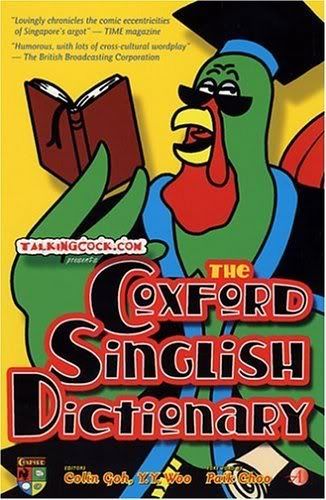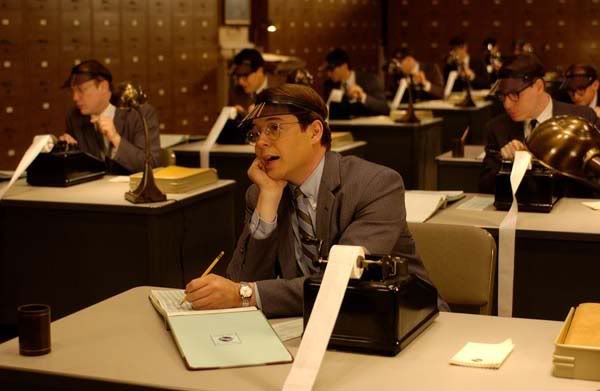Make Singlish official? Don't be extra, lah!
@
15:42
•
culture,
language,
Singapore,
society
•
0
comments
![]()
Some people may lament the lack of official recognition for Singlish. There is no definitive glossary of Singlish terms, no authoritative dictionary that people can turn to in order to reaffirm the meanings in this local variety of English that they use.
But does Singlish (as this Wiki article claims) not have its own version of the Oxford English Dictionary because the government disapproves of it? While that may be a contributing factor, it is but one that contributes to Singlish's larger 'problem'—the lack of institutionalisation.
And that is as it should be.
But why wouldn't a Singlish dictionary be useful? It might be useful for foreigners who are visiting Singapore, as an aid for finding their way in daily conversations with locals. But for such visitors, wouldn't a short glossary do?
If some visitors require more because they are staying for a much longer period, wouldn't it be best if they learned by being involved in local conversations? Doesn't the appeal of Singlish come from the fact that it is the lingua franca of the neighbourhood, something that is tacitly learned and that is the culmination of the different customs and culturally-specific meanings that have been thrown together in the melting pot that is Singaporean daily life?
Hence, attempts to codify Singlish and set its rules on paper are missing a crucial point—the very character of it as a creole that is woven into everyday life. Moreover, this brings up the more fundamental issue of the difference between creole and language, a difference that can tell us why the idea of a proper Singlish dictionary is at present quite nonsensical.
As mentioned earlier, meanings in creole are tacit and very much tied to users' habits rather than to formal rules. Thus, the very nature of a creole implies that its rules are institutionalised to a lesser degree compared to a language. And it is worth saying here that the politics of language is really all that separates the two, since language can hardly call itself pure either—most languages are after all derivations of others.
In that sense, there isn't really a sacred philosophical distinction between creole and language. Still, creole is, by virtue of its relatively uninstitutionalised character, closer to Wittgenstein's concept of language-games—examples of language use where actions define the meanings of words and the rules of language. In other words, the meanings of words in creole depend on how people collectively use those words (even more so than in language), in contrast to an imaginary situation where people adhere strictly to prescribed meanings when using words.
So, just as with language, the meanings of words in creole are defined by convention. The difference is, in creole, the conventions are not institutionalised to the same degree by things like authoritative dictionaries, academies and educational systems. Hence, attempts at creating creole dictionaries would not enjoy any kind of spectacular success without also being a real step towards institutionalising the rules that govern creole and thereby towards turning creole into language.
Of course, convention, being a rather 'democratic' thing, tends to come about only with the tacit agreement of the subjects—in this case the creole speakers. And this has implications not just on the meanings of words, but also on the nature of the creole itself. That is why Singlish dictionaries will, in the foreseeable future, remain mainly as humorous rather than useful material; and they will remain so until Singlish speakers tacitly agree to turn Singlish into a properly institutionalised language that is more rigid and bound by abstract rules.

